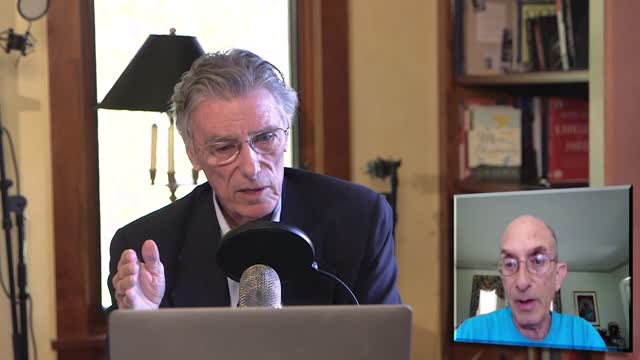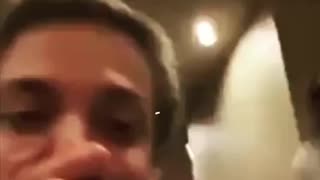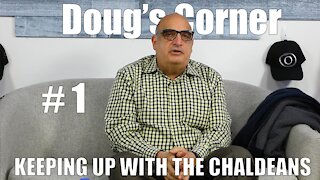Premium Only Content

Episode 79: Masks and Scarves and Overdraft Protection with Arnold Kling
This week I sought out Arnold Kling to learn more about some of his innovative ideas to deal with the health, economic and social fallout from the Covid-19 crisis.
Arnold, who blogs at arnoldkling.com/blog, author of “Specialization and Trade” and “The Three Languages of Politics” and with a PhD in Economics from MIT is one of America’s more original and penetrating thinkers.
Some of what we talk about:
“Masks and Scarves”
How do we know that we are getting the right data and smart science from our health authorities?
We’re relying on computer models, not real world experiments. The best evidence we have of what slows/halts the virus spread, is what’s happened in Hong Kong and Taiwan.
Rather than lockdowns, they have limited the disease’s spread by allowing people to go to work and school wearing surgical masks that help prevent sick people from infecting others.
If the purpose of social distancing is to keep sick people from infecting others, you could accomplish the same thing by mandating that everyone wear a mask and stop killing the economy with the blunt instrument of lockdowns.
“Less Fiscal Stimulus, Instead Overdraft Protection”
Mandated stay at home lockdowns have shuttered the U.S. economy creating personal and business liquidity problems. We’re not in a typical business-cycle recession that requires fiscal or monetary stimulus.
The solution: every bank account in the U.S., personal or business, would have added to it a line of credit, at low interest, backed by the federal government. “It would work like government-backed overdraft protection. It’s administratively about as simple as you could get and gets relief directly to those who most need it.”
“Normal is not an option”
“We have to resist the temptation to benchmark the future economic outlook against “normal,” where normal means what would have happened had the virus never appeared.
Pre-crisis, our patterns of specialization and trade were optimized for efficiency at the expense of fragility. Expect supply chains, especially in our trade with China, to have a lot more redundancy and to be less driven by cost minimization.
So do we end up with a smaller new “normal” economy or a different economy?
“I think a different economy. I like to use the analogy of the Second World War as an example of what's the economic precedent for this? So the Second World War we had to reallocate a lot of resources very quickly, both getting into the war and then at the end of the war as these millions of troops, the GIs come home and the factories no longer need to produce tanks. It was amazing how rapid and how relatively painless that readjustment was. That aspect makes me fairly optimistic.”
#Economics
#Big Ideas
#Politics
-
 1:02:54
1:02:54
The Bill Walton Show
1 year agoThe Terrifying Truth About China's Grip on America | A New Cold War Unveiled
3422 -
 21:34
21:34
HotZone
4 years agoEpisode 290 - Executive Protection Lifestyle with Byron Rodgers
139 -
 0:20
0:20
WeDoNotConsent
4 years agoDrinking with masks on ...
1.53K1 -
 6:44
6:44
Keeping Up With The Chaldeans
4 years agoDougs Corner: With Doug Saroki - Episode 1
49 -
 1:29
1:29
LumenActus
4 years agoInvention with Brian Forbes Episode 20
76 -
 36:48
36:48
Powerofsecondsight
4 years ago $0.09 earnedHaunted Youngstown Episode 1 with Pat Tucci
267 -
 1:51
1:51
KGTV
4 years agoExperts: N95 masks best for smoke protection amid wildfires
35 -
 0:43
0:43
KIVI
4 years agoMayor Kling asks public to wear masks
7 -
 52:39
52:39
Cultures Explored
4 years agoCultures Explored Episode 07 | Japanese Calligraphy with Mika
52 -
 0:34
0:34
Elissabell
4 years ago $6.00 earnedJOE BIDEN'S 11-20-20 BIRTHDAY Party with no masks! Enjoy
2.6K5